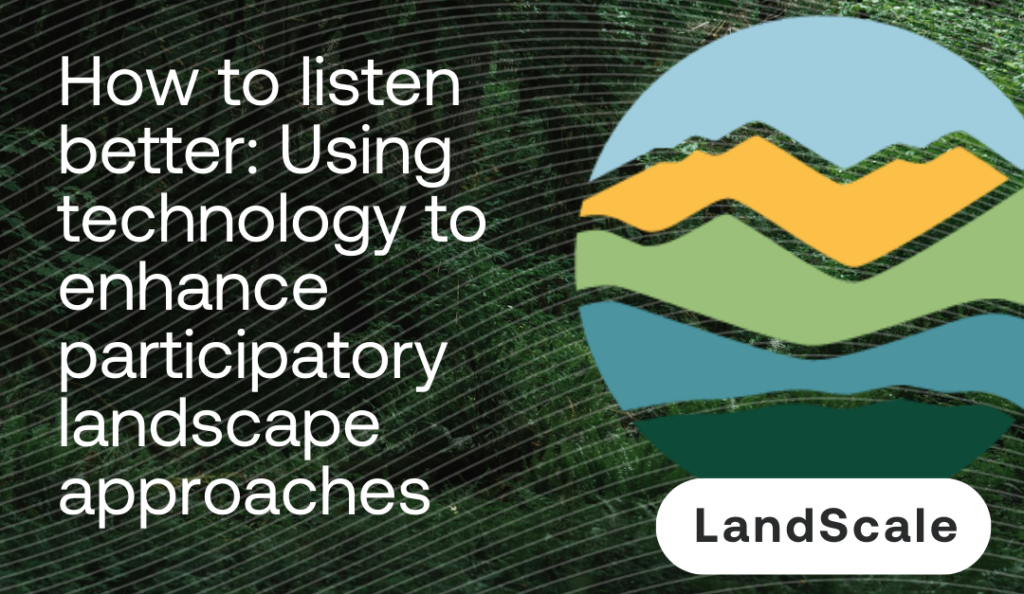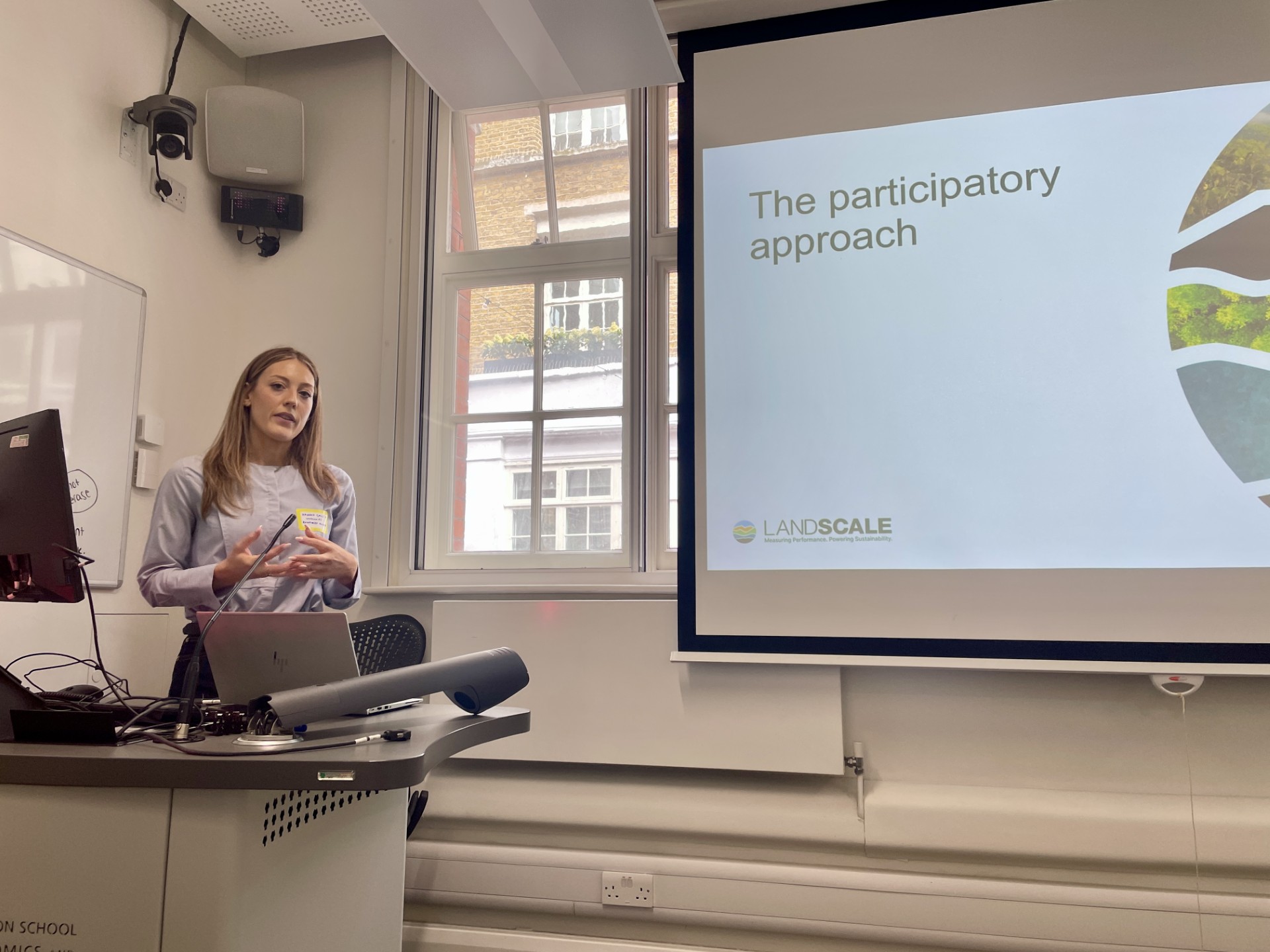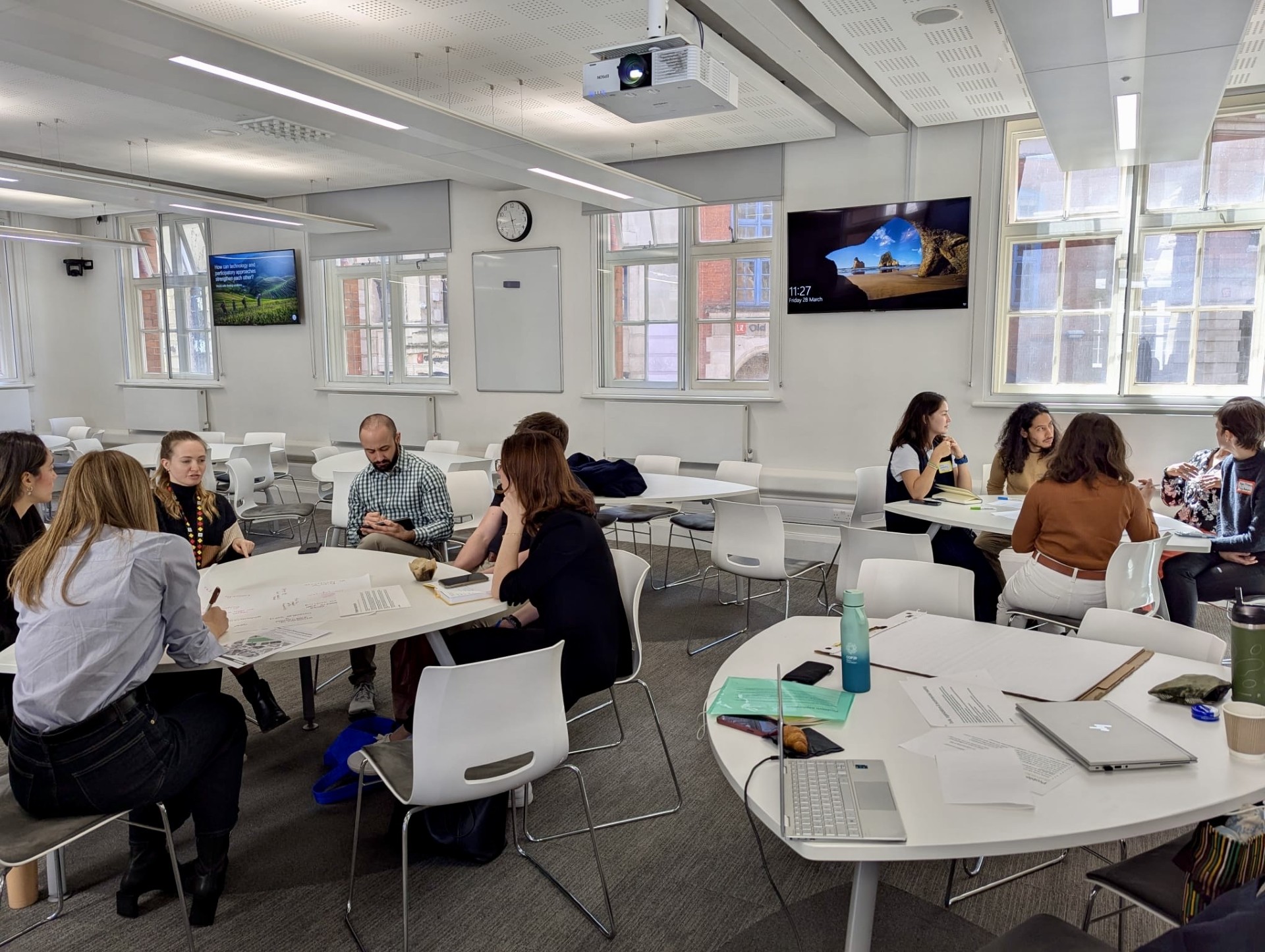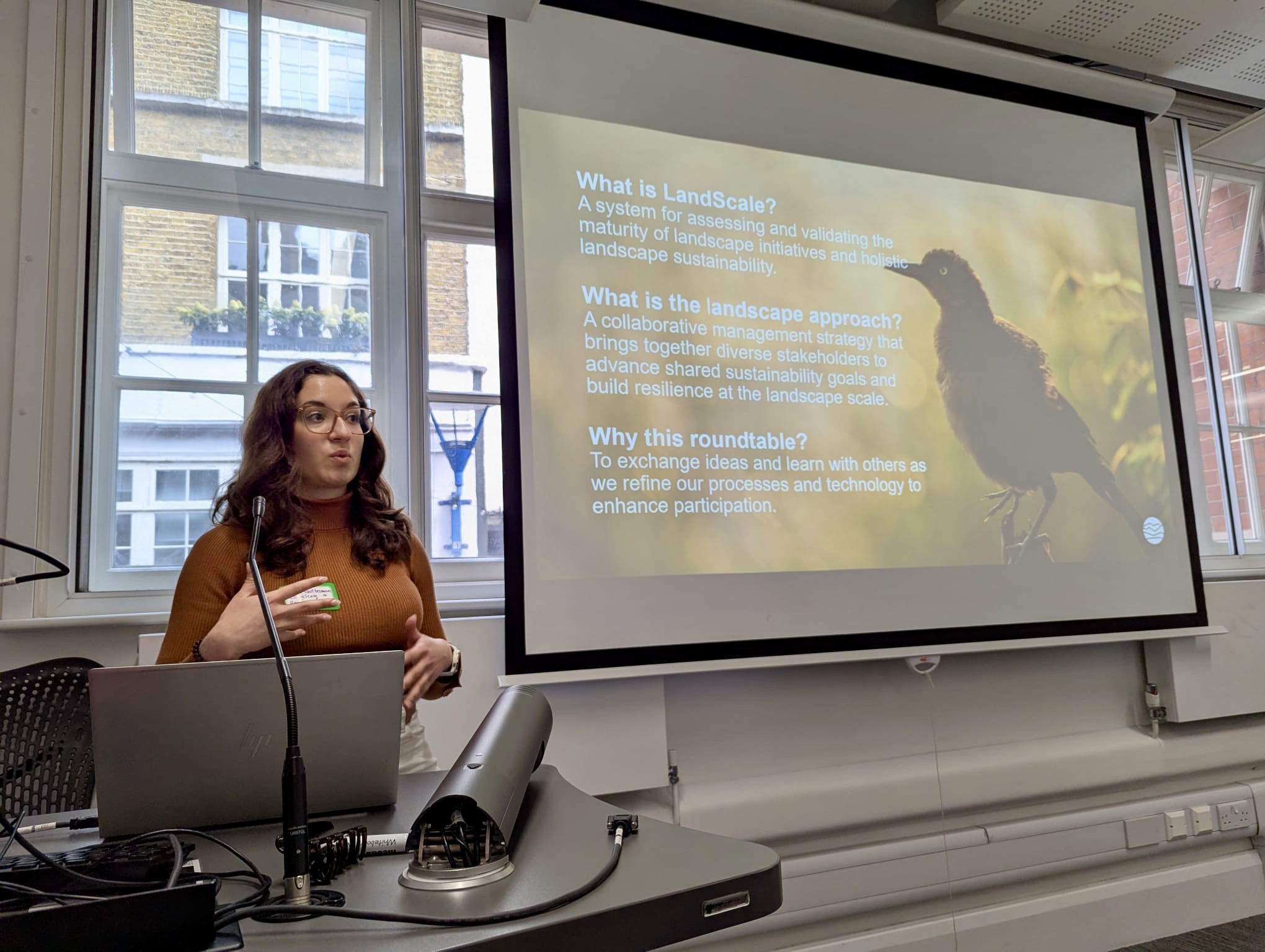News
Technology and participation: Insights from our Nature Tech Unconference roundtable
In this recent roundtable, we explored the dynamic relationship between technology and participatory approaches. Discussions highlighted success stories and challenges - from gender inclusivity in forest ranger programs to language barriers in technology adoption. Key takeaways emphasized that while technological advancements like AI translation tools create new opportunities, sustainable solutions require genuine community co-design and engagement. The roundtable reinforced that technology serves communities best when developed through participatory approaches that address power imbalances and respect local governance structures. Join our emerging working group as we continue to explore ethical and inclusive applications of technology in community-centered landscape initiatives.

On 28th March 2025, LandScale hosted a roundtable discussion at the Nature Tech Collective Unconference in London, exploring the intersection of technology and participatory approaches. We aimed to exchange ideas and learn with others, particularly as we refine our processes and technology to enhance participation—especially for marginalized groups. Participants included professionals seeking to take an inclusive approach in their research, their operations, the design of REDD+ programs, data collection processes and forest monitoring, and looking for strategies to create better interactions and dialogue with the communities they work with.
Framing the discussion
Our work at LandScale provides a system for assessing and validating the maturity of landscape initiatives and holistic landscape sustainability. The landscape approach itself is a collaborative management strategy that unites diverse stakeholders to advance shared sustainability goals and build resilience at the landscape scale.
We began the roundtable by introducing the participatory approach—an approach that actively engages stakeholders throughout all stages of a process, from design to data collection, analysis, reporting, and management. We highlighted key considerations and examples of best practices, which are included in the slides, as well as the risks of not taking a participatory approach.
Problem exploration
Participants explored challenges related to the intersection of technology and participation. One group, for example, discussed gender inclusivity in forest ranger training programs. In many cases, women are not included in these programs despite being key community members, leading to exclusion from related benefits and decision-making.
Another challenge identified was the lack of cohesive long-term strategies in many interventions. When programs are designed without active community participation, their effectiveness often diminishes after the initial investment and capacity training conclude. Robust participation during early design stages is crucial to ensure interventions align with local lifestyles, systems and governance structures of the communities responsible for implementation.

World café: Strengthening the relationship between technology and participatory approaches
The World Café format facilitated discussion through two lenses:
- How can technology strengthen participatory approaches?
- How can participatory approaches strengthen technology?
A key takeaway from one group was that beyond technology, funding structures and governance often present major challenges. Participants shared examples where communities rejected projects, yet initiatives proceeded regardless. Others highlighted the difficulty of sustaining participatory projects due to the need for continuous funding renewal, making long-term success difficult to achieve.

Success stories involving the use of technology were praised and discussed. In Kenya, a female health organization created online content providing important menstrual health and hygiene information and product recommendations, tips and insights for women and people who menstruate. To reach their audience, they printed QR codes on the packaging of menstrual products, achieving a huge engagement rate with a discreet marketing strategy.
Language barriers also emerged as a key challenge when designing technology for non-English speaking communities. However, the rapid advancement of large language models powering translation tools has significantly reduced this obstacle. These developments include specialized models that can be fine-tuned to understand slang-heavy local dialects, making cross-linguistic technology adoption more feasible.
Along with stories of success, participants highlighted examples where tech solutions, such as blockchain, were deployed without being fully co-designed with affected groups, and as a result, had failed. This shows the importance of the participatory approach in designing sustainable solutions.

Next steps and reflections
The discussions reinforced that technology can enhance participatory approaches when designed ethically and inclusively. Likewise, participatory approaches can guide technology development to be more community-centered and effective. Moving forward, our team is committed to integrating these insights into our work at LandScale and fostering further dialogue on ethical, inclusive, and sustainable technology applications in landscape initiatives.
Nevertheless, some key questions require further exploration. How to ensure that the contributions of relevant communities are actioned? How to deal with the imbalance of power between donors and local communities? How to settle conflicting interests in the design of these interventions? How to distinguish between problems benefiting from technological solutions and those that are better tackled with traditional interventions?
We welcome continued engagement from all roundtable participants. If there is sufficient interest, we would be happy to explore forming a working group dedicated to participatory approaches in nature tech. Please register your interest here if you would like to be involved or if you have further insights to share.
Let’s work together to ensure technology truly serves communities and strengthens participatory approaches for a more just and sustainable future.